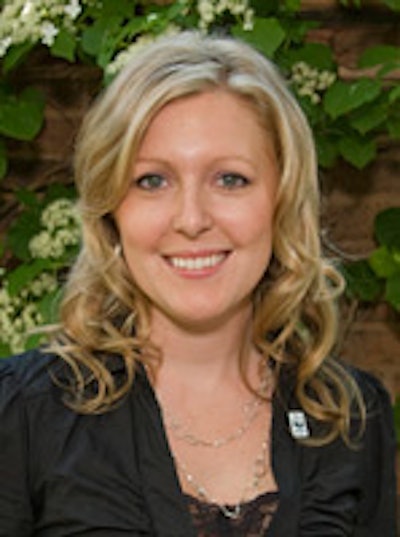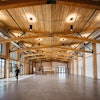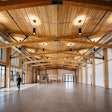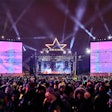
When the World Wildlife Fund launched Earth Hour in Sydney, Australia, in 2007, the organization called on businesses and individuals to turn off their lights for one hour to take a stand against climate change. More than two million people accepted the challenge. So, in 2008, the WWF turned Earth Hour into a global event. Tara Wood, manager of Earth Hour Canada, oversaw her country's participation in the event that brought together 35 nations last year. Before she asks Canada to turn off the lights between 8:30 and 9:30 p.m. this Saturday, she spoke with us about encouraging participation in such a large-scale event.
What is the WWF hoping to achieve with Earth Hour?
Earth Hour is a symbolic event. The goal is to get people to turn off their lights for one hour and send a visual statement to government and world leaders that people are taking action on climate change and they need to do the same. But the other purpose is to show individuals that each of us can play a role in the fight against climate change and even simple actions like turning off your lights add up to make a really big difference.
How do you market this event?
In terms of promotion, Earth Hour is a very grassroots online event. As a nonprofit rolling out an event of this size and scope, we rely very heavily on corporate sponsors to help us get the word out there. So this year we're working with Sears and Coke to help us spread the word. We also are very lucky to have great media partners on board, both in local markets as well as the Canadian Broadcasting Corporation as our national partner. Beyond that we look to businesses and individuals and other organizations to help us get the word out there. Earth Hour is a brand which anybody can use so it's really about giving up control and letting other people help us promote this.
Do people have to register events with the WWF?
We are encouraging people to register events on earthhourcanada.org but there is nothing stipulating exactly what your participation has to be. What we do is make sure that all the tools people would need to participate are online. We've got Web banners, we've got logos, we have public service announcements people can download. Basically all the information you would need to participate is right there at your fingertips. And we've tapped into different social networks this year. We have an official Facebook fan page where we've got almost 10,000 people signed up. We're Twittering about Earth Hour on a daily basis, we've got a MySpace page, and we're on YouTube. These are the social communities where things really take off and people help to tell that story. We truly rely on the online community to make sure people hear about this event.
Are there any new cities taking place in Canada this year?
There are five official partner cities this year. Last year we focused on Toronto, but this year we want to make it a national event. We're working directly with Halifax, Montreal, Toronto, Edmonton, and Vancouver. But beyond that there are already more than 200 communities across Canada signed up. We actually have the second most cities of any country in the world participating.
What does that mean in terms of the planning process?
It makes it a really tough event to plan for. What you need to do is focus in on the partner cities. Then it's just preparing for the unexpected and being really flexible. The great thing about this is there's so much support out there. On a daily basis we have great media companies and business supporters who have great pro-bono benefits they're offering us. So we're really lucky in that sense.
Many nonprofits are having trouble attracting sponsorships right now. Has the economy impacted this event?
We've been really lucky and secured some great sponsors. And the nice thing about Earth Hour is you don't necessarily have to give money in a real traditional sponsorship sense because any business can get on board and promote this, which looks good on them. One of the great things we found last year in the Earth Hour polling was that when people saw businesses participating in Earth Hour, they were more likely to support that business and buy their products. Canadians are savvy. We're environmentally conscious and we want the same in businesses we're supporting. So it's kind of a win-win.
What are some of the bigger components you'll be working on?
In Montreal there's some really neat stuff happening. It's called Ideas in the Dark. The WWF is working with an agency there called Bleu Blanc Rouge to get people out. We're going to encourage people to create art in the dark. We'll have some prominent artists come out and create some unique pieces. There are going to be some prominent bands that will be performing in the dark too, with a flashlight mob that's going to come out. And then out in Vancouver we are actually working with the Junos. We're going to be a part of their JunoFest. As the city turns off their lights at 8:30 p.m., we'll get the other artists that are performing that night to jump on board and turn off the lights with us.
How do you gauge the success of an event like this?
You do it in a couple of ways. To get some tactical numbers, we monitor the number of sign-ups and the traffic on the Web site itself. We do some post-event polling to look at actual participation. For instance, last year, in its first year, Earth Hour had 49 percent participation across Canada and 89 percent brand awareness. That's pretty phenomenal for the first year of an event. Beyond that you have to look at the media clips. There are so many people that are participating, it's really hard to absorb all the different people and the different ways they celebrate this event...we're hoping for a billion people globally this year.



















